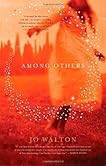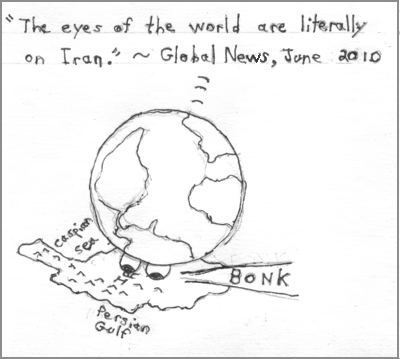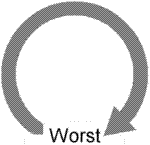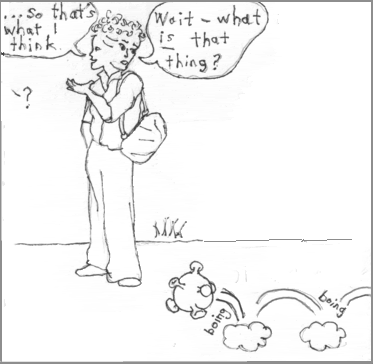 Among Others by Jo Walton
Among Others by Jo WaltonMy rating: 2 of 5 stars
There's such a lot wrong with this novel it's hard to know where to start. On the one hand, it's easy to read, even though I got to a point where I was thinking, enough with the shopping excursions and book purchases, have something happen already! Morwenna's sad situation, her out-of-place feeling at school and her struggles with her handicap (something the author herself obviously has an intimate knowledge of) are all movingly detailed. And I like the idea of a daughter having to face an evil magical mother. Usually in fantasy fiction, it's a son contending with an evil father. As well, there is an attempt to imagine how magic might work in the real world that we're all familiar with, through coincidence and such, and that gives the story a verisimilitude that's appealing.
Now that I've got the positive aspects out of the way, let's look at the shortcomings. There is so much talk of science fiction in this novel, including specific authors and books, that it can feel at times more like a recommended reading list than a novel. I found myself thinking of a statement in Brenda Ueland's book, If You Want to Write: "You cannot move people by a second-hand infection" (p. 119, Graywolf Press paperback edition). In other words, when Heinlein, Zelazny, Le Guin et al wrote the books that Jo Walton loved so, that was art, but when she wrote a book that was eighty percent, "Squee! SF is so great! I love Heinlein and Zelazny and Le Guin! Squee!" that was not art.
Another problem is that the most climatic event in the heroine's life happened before the novel begins. That put me off balance. I kept wondering, are we ever going to get a detailed description of what happened? (The answer is no.) I also wondered, why didn't she just write a novel about that event? Maybe it would have been more interesting.
Since novels need climaxes, another climax has to happen, and compared to what has gone before, it feels anticlimactic. The worst part of this anticlimactic climax, maybe the worst part of the book, is that it violates the laws of magic that Walton took such pains to establish beforehand! All through the novel she's telling us, "Magic is always deniable," and then at the very apex of the plot, gives us a thoroughly undeniable piece of magic, with no explanation. What happened there? Was the ending rushed? I don't know, but it's a boner of major proportions. (Hey, Morwenna's a horny teenage girl. Why not throw in a double entendre?)
In summary, it's another one of the most wildly overrated books around. There appear to be a lot of those. Why is that?
View all my Goodreads reviews I am pretty sure that this expression started out as "party hearty," with a t. But in North America, t's tend to be pronounced as d's, so that "party hearty" and "party hardy" sound the same. And in a society where sense is not expected, it doesn't matter that "party hearty" means "to party with gusto" and "party hardy" means, one can only suppose, "to party in difficult, inclement conditions." So when the expression got written down, "party hardy," whimsically nonsensical and having one letter fewer, won the day.
I am pretty sure that this expression started out as "party hearty," with a t. But in North America, t's tend to be pronounced as d's, so that "party hearty" and "party hardy" sound the same. And in a society where sense is not expected, it doesn't matter that "party hearty" means "to party with gusto" and "party hardy" means, one can only suppose, "to party in difficult, inclement conditions." So when the expression got written down, "party hardy," whimsically nonsensical and having one letter fewer, won the day.
 Global News did this. "The eyes of the world are literally on Iran," the broadcaster said. No, the eyes of the world are figuratively on Iran.
Global News did this. "The eyes of the world are literally on Iran," the broadcaster said. No, the eyes of the world are figuratively on Iran.
 If worse comes to worst. That's the expression, OK people? Really, a better expression would be, "if bad comes to worse." Maybe that's what the expression used to be, and people didn't think that was strong enough. But at least, "if worse comes to worst" makes some kind of sense. Things got worse, and then they got as bad as they possibly could—the worst. "Worst comes to worst," on the other hand, makes no sense at all.
If worse comes to worst. That's the expression, OK people? Really, a better expression would be, "if bad comes to worse." Maybe that's what the expression used to be, and people didn't think that was strong enough. But at least, "if worse comes to worst" makes some kind of sense. Things got worse, and then they got as bad as they possibly could—the worst. "Worst comes to worst," on the other hand, makes no sense at all.
 Another thing! You've got a thing coming. I love that. It's so idiotic, it's good. And no less an intellectual than Susie Bright used this expression (in her article about Camille Paglia: "If you think Pat Buchanan calls up Hurricane Camille for strategy sessions, you've got another thing coming"
Another thing! You've got a thing coming. I love that. It's so idiotic, it's good. And no less an intellectual than Susie Bright used this expression (in her article about Camille Paglia: "If you think Pat Buchanan calls up Hurricane Camille for strategy sessions, you've got another thing coming"